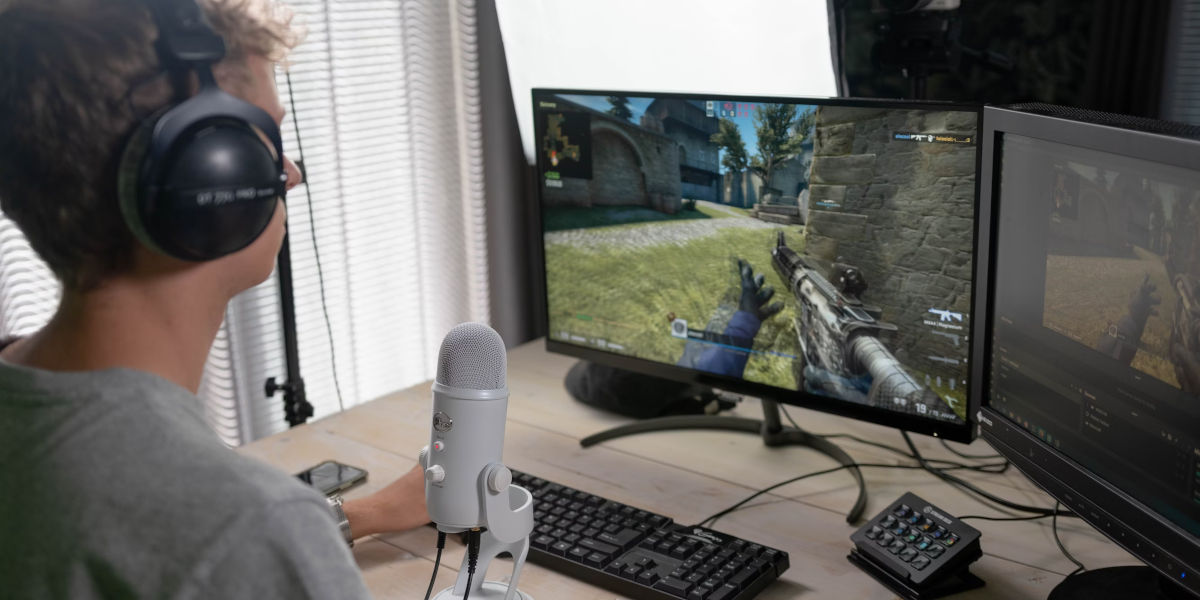Ever since their inception, online gaming communities have significantly transformed the way we communicate and interact with other people. As members of this shifting digital realm ourselves, many of us have wondered: "Are these gaming tribes bringing about new social norms, or do they merely harbor a silent epidemic of digital isolation?" This article attempts to shed light on this question, while exploring, 'how online gaming has changed social interactions?'
'How Online Gaming Has Changed Social Interactions'
Taking a trip back to the early days of gaming, one would recall that encounters were strictly limited to a board or joystick, enjoyed personally or with friends physically present. However, the rise of the internet ushered in a radical transformation in the gaming space. Today, gaming is not so much about battling out scores against your sibling: it's expanded to facilitate interactions amongst people from diverse corners of the world. Gamers are now part of a deeply interconnected world – teaming up, strategizing, competing, and even fostering relationships with people they've never met in the flesh.
But what happens when these interactions move from the real world to the digital realm? Are they fostering genuine social connection, or are the players increasingly becoming socially isolated?
There's a tale of two perspectives. On the one hand, there's an optimistic stand that these communities are fostering a new social order. Upon a closer look, one can easily identify multiple examples of how these communities have cultivated friendships, inclusivity, and team spirit.
'Is Online Gaming Making Us More Social?'
Let's take the global sensation 'League of Legends', for example, that boasts a community full of proactive players. Every match necessitates communication between the team members for strategizing and coordinating moves. Similarly, massively multiplayer online games (MMOs) like 'World of Warcraft' also demand players to collaborate, help, and rely on each other to progress. This approach often leads to the formation of friends and sometimes even romantic relationships.
Moreover, online communities are also proving to be therapeutic for many. Several studies suggest that online gaming can be a reprieve for the socially anxious, providing an environment where they can find comfort, express themselves, and cultivate valuable social skills.
However, as the coin flips, we come face-to-face with the issue of digital isolation.
The Double-Edged Sword: Social Order and Isolation
The prevalence of online relationships in gaming can be seen as both the advent of a new social order and a curse of digital isolation. Online gaming communities, while providing individuals with a virtual playground where they can bond with other players and partake in challenging adventures, can also alienate some who can’t cope with the fast-paced, competitive nature of these games.
Many gamers will tell you that some of their closest friendships have formed through their gaming activities. They have come in contact with like-minded individuals from across the globe, bonded with them through shared experiences, and developed long-term relationships that have extended beyond the digital world.
Furthermore, gaming communities have evolved from being small fragmented groups to well-organized societies. They now have rules, hierarchies, and reward systems that mimic real-life social constructs. Indeed, for many, these gaming communities offer an inclusive space where their capabilities are recognized and appreciated, which in turn, motivates them to perform better.
However, this new social order comes with its caveats. One’s worth within these communities can heavily rely on their gaming prowess, creating an intense competitive environment that can push some to obsessively invest their time and energy into gaming. The quest to climb the gaming ranks can sometimes take precedence over real-life engagements, leading to what many perceive as digital isolation.
The Balance Between Gaming and Real-Life
While gaming offers a sense of companionship and camaraderie in the virtual realm, it is essential to balance this with real-life social interactions. Face-to-face interactions provide a whole range of emotional and behavioral cues that cannot be entirely replicated in the digital world. It is vital for gamers, particularly young ones, to keep ranking in the leaderboard of life as well as within their favorite game.
The Verdict: A Case-by-Case Basis
So, do online gaming communities represent a new social order or digital isolation? There isn't a one-size-fits-all answer to this question as it veers off into subjective territory. For some, the world of online gaming proves a haven to participate in communal experiences with people globally. Yet, for others, it has the potential to escape into a digital world where their performance metrics define their self-worth.
The line between advancing social order and perpetuating isolation can be blurry. It can swing either way depending on an individual’s personal experiences, gaming behavior, and ability to strike a balance between their real and virtual lives.
In the end, gaming communities, like any other social grouping, have their pros and cons. Recognizing these and deciding how much of your life they should take up is part of the journey. Whether you are a seasoned gamer forging forth in massive multiplayer online role-playing games, or a casual player, understanding this balance is key to keeping your online gaming experience healthy and enjoyable.




